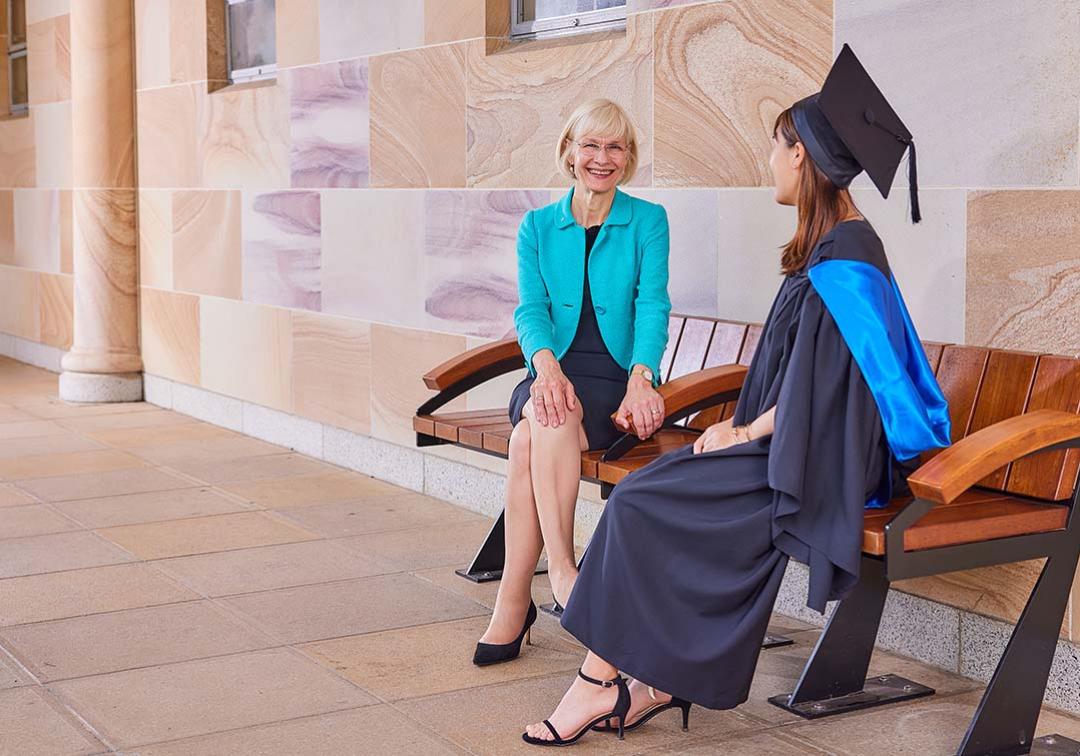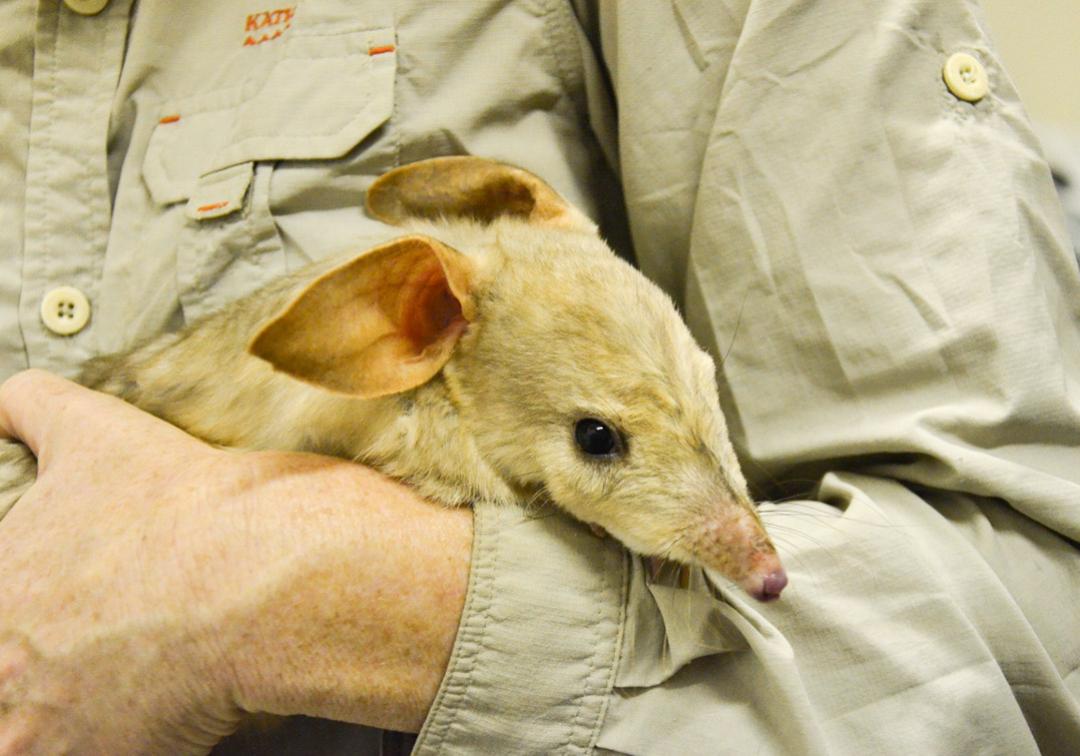
Bachelor of Veterinary Technology (Honours)
Overview
Undertake additional practical studies and an honours research project to extend your veterinary technology expertise.
This one-year program follows on from the Bachelor of Veterinary Technology.
Acquire advanced training in clinical, regulatory, diagnostic or other para-professional streams applicable to veterinary technologists.
Gain practical professional experience in either UQ Gatton’s Small Animal Hospital and Equine Specialist Hospital, or at an approved external placement.
Develop your expert knowledge in an animal health or welfare topic of interest to you through a supervised honours research project.
Graduate as a para-veterinary healthcare specialist, with critical thinking, problem-solving and self-directed learning and research skills that can be applied to a range of roles in animal-related fields.
Honours also provides opportunities for future postgraduate studies, such as a master's degree or PhD.
Program highlights
- Enjoy access to world-class facilities, teachers, research and knowledge at UQ's Gatton campus.
- Gain essential hands-on experience in external placements or at UQ Gatton’s Small Animal Hospital and Equine Specialist Hospital.
- Enhance your employment opportunities through advanced professional training under the guidance of a supervisor.
- Build your expert knowledge with an honours research project in veterinary technology.
How you'll learn
Your learning experiences are designed to best suit the learning outcomes of the courses you choose.
- Lectures
- Tutorials
- Work placements
- Online study
- Overseas study
- Research experience
- Laboratory work
- Workshops
What you'll study
At UQ, degrees are called 'programs' and subjects are called 'courses'. Here's a sample of the courses you could study in this program:
- Epidemiological and Research Methods for Animal and Veterinary Biosciences
- Veterinary Technology Honours Practicum
- Honours Research Project in Veterinary Technology
Career possibilities
Our programs prepare you for your first job and beyond. Here are some of the careers you could be on your way to:
- Veterinary technician
- Veterinary nurse
- Laboratory technician
- Veterinary pathologist
- Biosecurity officer
- Technical manager
Average annual salary range
Biosecurity Officer
seek.com.au
Average annual salary range
Laboratory Supervisor
seek.com.au
Events
See all eventsStories
See all storiesStories
See all stories
UQ people
Biotech with purpose: Krishtee’s plan to future-proof food in Mauritius
2-minute read
Entry requirements
Prerequisites
- a grade point average (GPA) of 5.0 on a 7-point scale, and
- have secured an honours project and supervisor, and
- satisfied any additional requirements set by the head of school.
Prerequisites
- a grade point average (GPA) of 5.0 on a 7-point scale, and
- have secured an honours project and supervisor, and
- satisfied any additional requirements set by the head of school.
English language requirements
IELTS overall 6.5; reading 6; writing 6; speaking 6; listening 6. For other English Language Proficiency Tests and Scores approved for UQ
TOEFL iBT (including Paper Edition) - Overall 87, listening 19, reading 19, writing 21 and speaking 19.
PTE Academic - Overall Score of 64 and 60 in all sub bands.
BE - A minimum overall grade of 4 plus a minimum grade of C in all macro skills.
CES - Overall 176 and 169 in all sub bands.
OET is not accepted.
There are other ways to meet the English language requirements. For some programs, additional conditions apply.
Student visas
International students who are accepted into full-time study in the Bachelor of Veterinary Technology (Honours) are eligible to apply for an Australian student visa (subclass 500).
There are a number of requirements you must satisfy before a visa is granted, including the Genuine Student (GS) requirement.
Additional application information
Additional application information
Fees and Scholarships
Indicative annual fee
Approximate yearly cost of tuition (16 units). Your fees will vary according to your selected courses and study load. Fees are reviewed each year and may increase.
$13,060
2026
Approximate yearly cost of tuition (16 units). Your fees will vary according to your study load. Fees are reviewed each year and may increase.
AUD $54,096
2026
Government assistance
Financial aid
As an international student, you might be eligible for financial aid – either from your home country, or from the Australian Government.
HECS-HELP
Domestic places in the Bachelor of Veterinary Technology (Honours) are Commonwealth supported, as long as you meet all Commonwealth supported place eligibility requirements.
This means the cost of your education is shared between you and the Australian Government. Instead of tuition fees, Commonwealth supported students pay what are called student contribution amounts.
If you have a Commonwealth supported place, you may also be eligible for HECS-HELP. This is an Australian Government loan scheme to assist eligible students with the cost of their student contribution amounts.
Centrelink support
The Australian Government offers a number of income-support payments to eligible Australian university students.
Scholarships
You may be eligible for more than 100 scholarships, including:
How to apply
Applying online
All international applications should be submitted to UQ. If you prefer, you can use an approved UQ agent near you.
The program code for the Bachelor of Veterinary Technology (Honours) is 2422.
Applying online
All domestic applications should be submitted to UQ.
The program code for the Bachelor of Veterinary Technology (Honours) is 2422.
Important dates
The closing date for this program is:
- To commence study in semester 2 - May 31 of the year of commencement.
- To commence study in semester 1 - November 30 of the previous year.
Visa processing times vary. Apply and accept your offer as early as you can.
To learn more about UQ dates, including semester start dates, view the Academic Calendar.
Important dates
The closing date for this program is:
- To commence study in Semester 1 - January 31 of the year of commencement.
- To commence study in Semester 2 - June 30 of the year of commencement.
To learn more about UQ dates, including semester start dates, view the Academic Calendar.
Aboriginal and Torres Strait Islander applicants
For support with applying – or if you have any questions about university life – get in touch with our Aboriginal and Torres Strait Islander Studies (ATSIS) Unit.
Explore other programs
Express yourself. And your interest.
They say choosing a degree is hard, which is why we've made it easy. Register your interest and we'll send you everything you need to know about applying to UQ.




